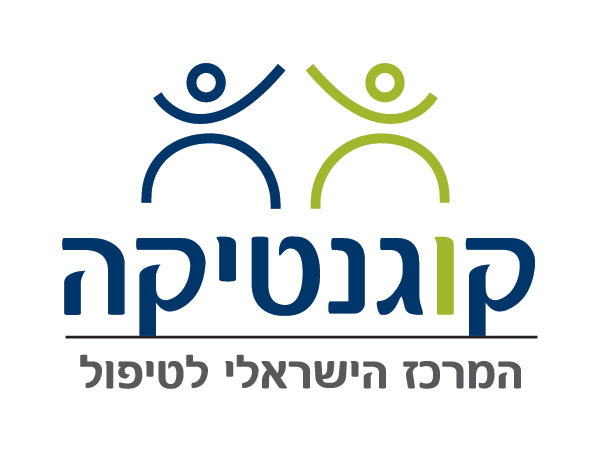
 |
מקורות |
|
אי-פי. ידע פירושו חרדה. כתבה מתוך עיתון הארץ. 11 ביולי 1996.
בנאדור, ד. (2000). לדעת או לא לדעת? בחירה בין מצבי ידע לגבי נשאות גנטית של מלה חשוכת מרפא. עבודת מ.א. מוגשת למחלקה לפסיכולוגיה. האוניברסיטה העברית, ירושלים. גרמן, צ. (1990). היחס שבין דחיינות לאשמה כבסיס לטיפולוגיה של דחיינים ולא דחיינים. עבודת גמר, מוגשת לפקולטה למדעי החברה, אוניברסיטת תל-אביב: ת"א. הצעת חוק הגנה על מידע גנטי. (1998). מס' הצעה: פ1361/. שורצולד, י. (2000). העמדה ורכישתה. פסיכולוגיה חברתית. אראל-גפני, ע. (עורכת). האוניברסיטה הפתוחה: רמת אביב.
Aspinwall, L.G., & Brunhart, S.M. (1996).
Distingusing optimism from, denial: optimistic beliefs predict attention to health threats.
Personality and Social Psychology Bulletin, 22, 993-1003.
Aro. A.R., Hakonen, A., Hietala, M., Lonnqvist, J., Niemela, P., Peltonen, L., & Aula, P. (1997). Acceptance of genetic testing in general population: age, education and gender differences. Patient Education and Counseling, 32(1-2), 41-49. Burger, J.M., & Cooper, H.M. (1979). The desirability of control. Motivation and Emotion, 3(4), 381-393. Cacioppo, J.T., & Petty, R.E. (1982). The need for cognition. Journal of Personality and Social sychology, 42(1), 116-131. Cacioppo, J.T., & Petty, R.E., & Morris, K.J. (1983). Effects of need for cognition on message evaluation, recall and persuasion. Journal of personality and social psychology, 45, 805-818. Decruyenaere, M., Evers Kiebooms, G., & Van Den Berghe, H. (1993). Perception of predictive testing for Huntington´s disease by young women: preferring uncertainty to certainty?. Journal Of Medical Genetics, 30, 557-561. Fiske, S. T., & Taylor, S. E. (1991). Social cognition and the self. Social Cognition (2 ed.). New York: McGraw-Hill, 197-205. Keren, G., Yaniv, I., & Sagi, M. (2001). To Know or Not to Know: The conflict underling genetic testing. Manuscript in preparation, University of Eindhoven. Koala, G. (1986). Genetic screening raises questions for employers and insurers. Science, 232, 317-319. Lerman, C., & Croyle, R. (1994). Psychological issues in genetic testing for breast cancer susceptibility. Archive of internal medicine, 154, 609-616. Lippman, A. (1991). Research studies in applied human genetics: A quantitative analysis and critical review of recent literature. American journal of medical genetics, 41, 405-111. Loewenstein, G. (1996). The psychology of curiosity: A review and reinterpretation. Psychological bulletin, 116, 75-98. Miller, S.M. (1987). Monitoring and blunting: Validation of a questionnaire to assess styles of information-seeking under threat. Journal of Personality and Social Psychology, 52, 345-353. Miller, S.M., & Brody, D.S. (1988). Styles of coping with threat: implications for health. Journal of Personality and Social Psychology, 54, 142-148. Murray T.H. (1984). The ethical use of genetic knowledge. In J.O. Weiss, B.A. Bernhardt, & N.W. Paul (Eds.), Genetic disorder and birth defect in families and society: Toward interdisciplinary understanding, 169-174. New York: Alan R. Liss. Olson, K., Camp, C., & Fuller, D. (1984). Curiosity and need for cognition. Psychological reports, 54, 71-74. Sadowski, C.J. (1992). An examination of the short need for cognition scale. The Journal of Psychology, 127(4), 451-454. Sadowski, C.J., & Cognburn, H.E. (1997). Need for cognition in the big-five factor structure. The journal of psychology, 131(3), 307-311. Scheier, M.F., & Carever, C.S. (1985). Optimism, coping, and health: assessment and implications of generalized outcome expectancies. Health Psychology, 4, 219-247. Scheier M.F., Weintraub, J.K., & Carver, C.S. (1986). Coping with stress: Divergent strategies of optimists and pessimists. Journal of personality and social psychology, 6, 1257-1264. Shiloh, S. (1996). Genetic counseling: a developing area of interest for psychologists. Professional Psychology: Research and Practice, 27, 475-486. Shiloh, S., Ben-Sinai, R., Keinan, G. (1999). Effects of controllability, predictability and information-seeking style on interest in predictive genetic testing. Personality and social psychology bulletin, 25(10)., 1187-1195. Shiloh, S., Petel, Y., Papa, M., & Goldman, B. (1998). Motivations, perceptions and interpersonal differences associated with interest in genetic testing for breast cancer susceptibility among women at high and average risk. Psychology and health, 13, 1071-1086. Seligman, M.E.P. (1987). Predicting depression, Poor health and presidential election. A Transcript of a lecture presented at a Science and Public policy seminar, On February 27, University of Pennsylvania. Steptoe, A., & O'Sullivan, J. (1986). Monitoring and blunting copying styles in women prior surgery. British Journal of clinical psychology, 25, 143-144. Taylor, S.E., Kemeny, M.E., Aspinwall, L.G., Schneider, S.G., Rodriguez, R., & Herbert, M. (1992). Optimism, coping, psychological distress and high risk sexual behavior among men at risk for acquired immunodeficiency syndrome (AIDS). Journal of Personality and Social Psychology, 63(3), 460-473. Tedeschi, J. T., Schlenker, B.R., & Bonoma, T.V. (1971). Cognitive dissonance: Private ratiocination or public spectacle? American Psychologist, 26, 685-695. Thibodeau, R., & Aronson, E. (1992). Taking a closer look: Reasserting the role of self concept in dissonance theory. Personality and social psychology bulletin, 18, 591-602. Tibben, A., Frets, P.G., Van de Kamp, J.J.P., Niermeijer, M.F., Vegter Van der vlis, M., Roos, R.A.C., Van ommen, G.J.B., Duivenvoorden, H.J., & Verhage, F. (1993). Presymptomatic DNA-testing for Huntington disease: Present attitudes and expectations of applicants and their partners in the Dutch program. American Journal of Medical Genetics, 48, 10-16. Verplanken, B., Hazenberg, P.T., & Palenewen, G.R. (1992). Need for cognition and external information search effort. Journal of research in personality, 26, 128-136. Welkenhuysen, M., Evers Kiebooms G., & Van Den Berghe, H. (1997). Attitudes toward predictive testing for Alzheimer disease in a student population. Behavioral Neurology, 10, 143-148. Wexler, N.S. (1979). Genetic "Russian Rulette": The experience of being "at risk" for Huntington's disease. In Kessler, S. (ed.): Genetic counseling - Psychological dimensions. New York: Academic Press. Wiggins, S., Whyte, P., Huggins, M., Adam, S., Theilmann, J., Bloch, M., Sheps, SB., et al. (1992). The psychological consequences of predictive testing for Huntington's disease. The New England Journal of Medicine, 327, 1401-1405. תקציר | מבוא | מטרת המחקר | טיפול | העדפה לודאות כפונקציה של הנגישות למידע | משתני אישיות | נבדקים | כלים | מערך המחקר | תיאור המדגם | הנכונות לדעת בתנאים השונים | הקשר בין הנכונות לדעת לנטיות אישיות | סדר השאלות וההבדלים הבין אישיים | ניתוח תוכן לנימוקים המילוליים | השפעת הטיפול על הנכונות לדעת: הפרדת שליטה מידיעה | השפעת הנגישות למידע על הנכונות לדעת | מאפייני אישיות והנכונות לדעת | סוגיות נוספות בהחלטה לדעת | ביקורת וסיכום | מקורות | |
ייעוץ אקדמי 
בחסות
 עוד יישומים שלנו 
 |
דף הבית -
שאלות נפוצות -
רישום -
מודעות עצמית -
מחקר מדעי -
פסיכולוגיה -
פאנל - סקרים -
תנאי שימוש
שאלונים:
זוגיות -
אישיות -
אמונות -
בריאות -
עמדות -
משפחה -
התנהגות
מאמרים:
אקטואליה -
אישיות -
זוגיות ומיניות -
כלכלה ועבודה -
פסיכותרפיה -
בידור -
יישומים מסחריים:
טיפול בשפיכה מוקדמת -
סקרי דעת קהל -
מחקרי שוק
פסיכולוג בגוש דן -
פסיכולוג בירושלים -
פסיכולוג בחיפה -
פסיכולוג בבאר שבע -
פסיכולוג ברמת הגולן -
פסיכולוג בגליל המזרחי -
פסיכולוג בגליל המערבי -
פסיכולוג בעמקים -
פסיכולוג בשומרון -
פסיכולוג בשרון -
פסיכולוג ביהודה -
פסיכולוג בשפלה -
פסיכולוג בצפן הנגב -
פסיכולוג באילת והנגב הדרומי
כל הזכויות שמורות © all rights reserved
זמן טעינה: 28397.05 שניות.